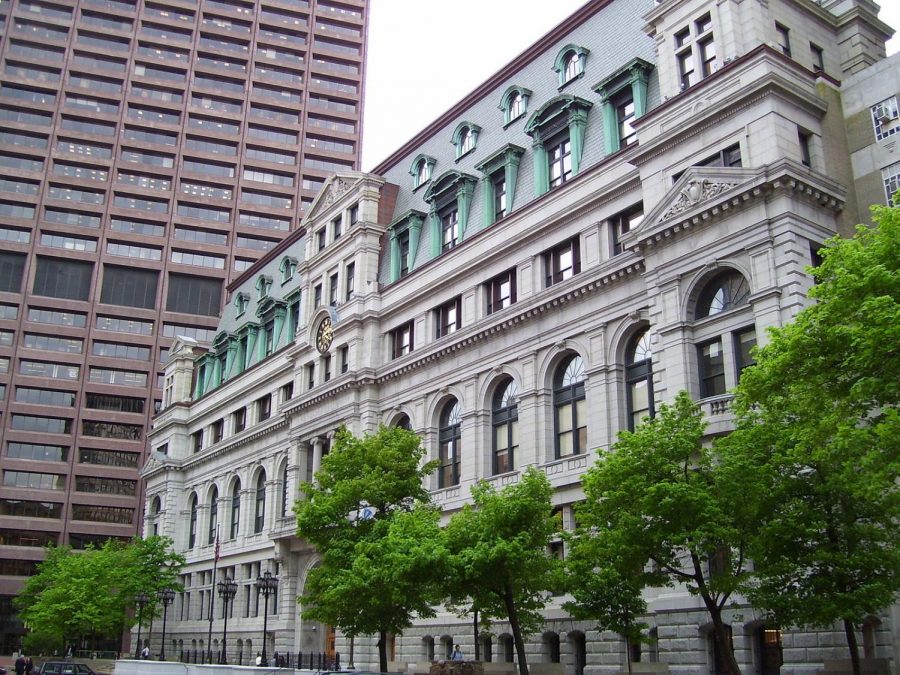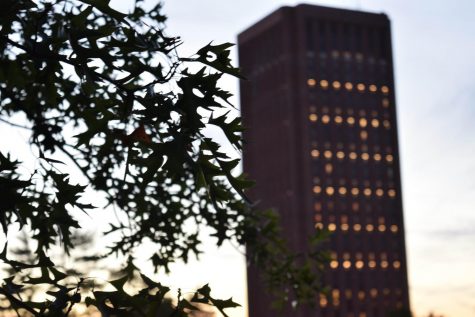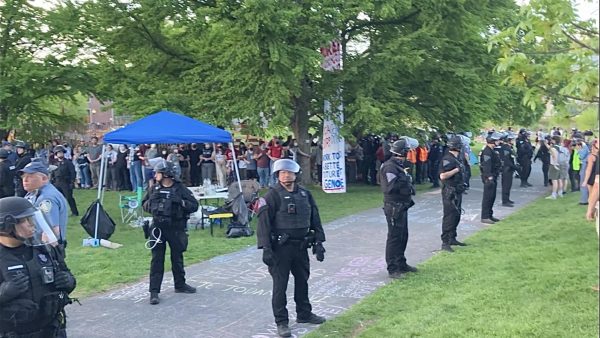UMASS Amherst hosts Massachusetts Appeals Court hearings
The cases litigated ranged from medical malpractice to termination of parental rights.
UMass Amherst hosted the Massachusetts Appeals Court on Tuesday, Oct. 1 to broaden public awareness, understanding and accessibility of the Massachusetts court system. Associate Justice and Panel Chief William J. Meade, Associate Justice Sydney Hanlon and Associate Justice C. Jeffrey Kinder heard oral arguments in six cases.
The Appeals Court was established in 1972 to serve as the Commonwealth’s mid-level appellate court—parties can request their case be reviewed by the Supreme Judicial Court, but very few cases are granted further appeal. Therefore, the Appeals Court is the last resort for someone seeking an appeal. The Appeals Court has one chief justice and 24 associate justices. The justices sit in panels of three and the composition of these panels change monthly.
Justice Meade received his bachelor’s degree cum laude from UMass Amherst in 1986 and his Juris Doctorate degree from Western New England School of Law in 1989. From 2003 to 2005, Justice Meade served as deputy chief legal counsel to Gov. Mitt Romney. Gov. Romney appointed Justice Meade to the Appeals Court in 2006.
Justice Hanlon graduated from Brown University in 1972 and from Harvard Law School in 1975. Justice Hanlon served as assistant district attorney and head of the sexual assault unit in Norfolk County from 1977 to 1982. In 1982, Justice Hanlon became an assistant U.S. attorney in Boston, where she was assigned to the Organized Crime Drug Enforcement Task Force. Justice Hanlon was appointed to the Appeals Court by Gov. Deval Patrick in 2009.
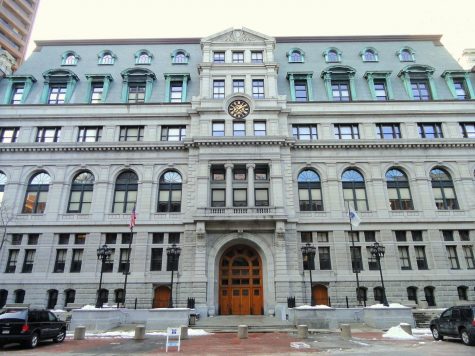
Justice Kinder graduated from Kenyon College in 1976 and from the University of Toledo School of Law in 1981. Justice Kinder became Assistant District Attorney in Denver in 1986 and became Chief of the Attorney’s Office in Springfield in 1989. Justice Kinder served as Regional Administrative Justice for Western Mass. from 2011 to 2015. Gov. Charles Baker appointed Justice Kinder to the Appeals Court in 2015.
One of the cases heard was Kellan P. Humphries v. Kirkham B. Wood et al. In this case, 15-year-old Kellan Humphries sued Dr. Wood and Mass. General Hospital for medical malpractice. Dr. Wood removed Humphries’ tailbone after he sustained an injury during a bike race, but the wound became infected shortly after. Humphries had to undergo numerous surgical procedures afterward to heal the infection and close the wound.
The defendant’s attorney argued that she had insufficient time to complete her cross-examination of her expert witness during the trial, depriving them of their right to a full and fair cross-examination—however, the defendant’s attorney didn’t inquire if the jury would be willing to stay for the remainder of the cross-examination, nor could she point to anything specific that would have been different if it were live. The defense attorney also claimed that the damages rewarded to Humphries were excessive.
“Without any indication of what would be perceived differently live, I’m struggling to see the prejudice,” Justice Kinder told the defense attorney. The defense attorney rebutted that it made the cross-examination seem less important because the jury “could watch it later.” The defense attorney also argued that there wasn’t a certified videographer recording the cross-examination, further degrading the quality of her cross-examination.
The prosecuting attorney argued that the defenses lawyer didn’t say she had insufficient time to finish her cross-examination until it was too late, and that Dr. Wood was a “terrible witness” during cross-examination. The prosecuting attorney also claimed Dr. Wood lied to the jury by exaggerating the number of coccygectomy surgeries he’s performed fourfold; he’s only performed about 70 to 80, but said he’s done over 300. The prosecuting attorney rebutted the defense attorney’s argument that the video was insufficient, stating there was nothing inadequate about it “other than the defendants lost the case.” The prosecution also defended the damages Humphries received, stating that $27,000 a year isn’t unreasonable when Dr. Wood’s annual income totals $1,250,000.
Another case they heard, Adoption of Child, is impounded, meaning some or all papers and documents are unavailable to the public. The prosecuting and defense attorney were required to use pronouns because the defendant was present during the trial.
A father was appealing Berkshire Juvenile Court’s decision to terminate his parental rights regarding his two-year-old son, citing the father’s lack of transparency with the Department of Children and Families. The prosecution also cited the father’s habitual marijuana usage, failure to show up to social worker visits and lack of a valid phone number.
The defense attorney argued that although there were “minor problems,” the father was not unfit—there were no allegations of neglect when the child was under his care. The mother was a known drug addict and involved in a gang, which neither the DCF nor the father were aware of at the time. The defense attorney argued that the DCF wanted to terminate the father’s parental rights because he lived with his grandmother—which he denied, Justice Hanlon quickly pointed out.
“If you think someone is homeless, taking their child from them isn’t unreasonable,” Justice Hanlon said.
The prosecuting attorney argued that the father’s lack of transparency and unwillingness or inability to comply with the DCF were the main issues. The child wasn’t permitted to live in a “village setting” because the DCF didn’t know who was living in the house. The father missed half of his social worker visits, didn’t visit the child for four consecutive months and didn’t provide the DCF with a valid phone number. The prosecuting attorney also stated that the father showed up high to a visit with a social worker.
The prosecution stated that it would allow the father four annual visits with his son, but that it was in the child’s best interests to let the adoptive family make that decision.
You can learn more about the Mass. Appeals Court on their website.
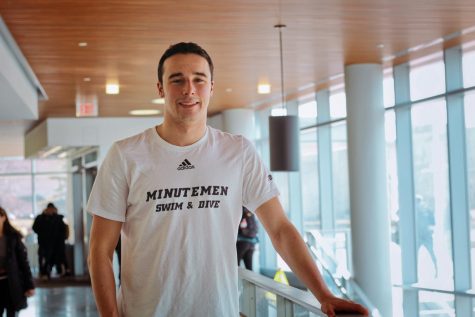
Email Harry at [email protected], or follow him on Twitter @HarryOrtof

